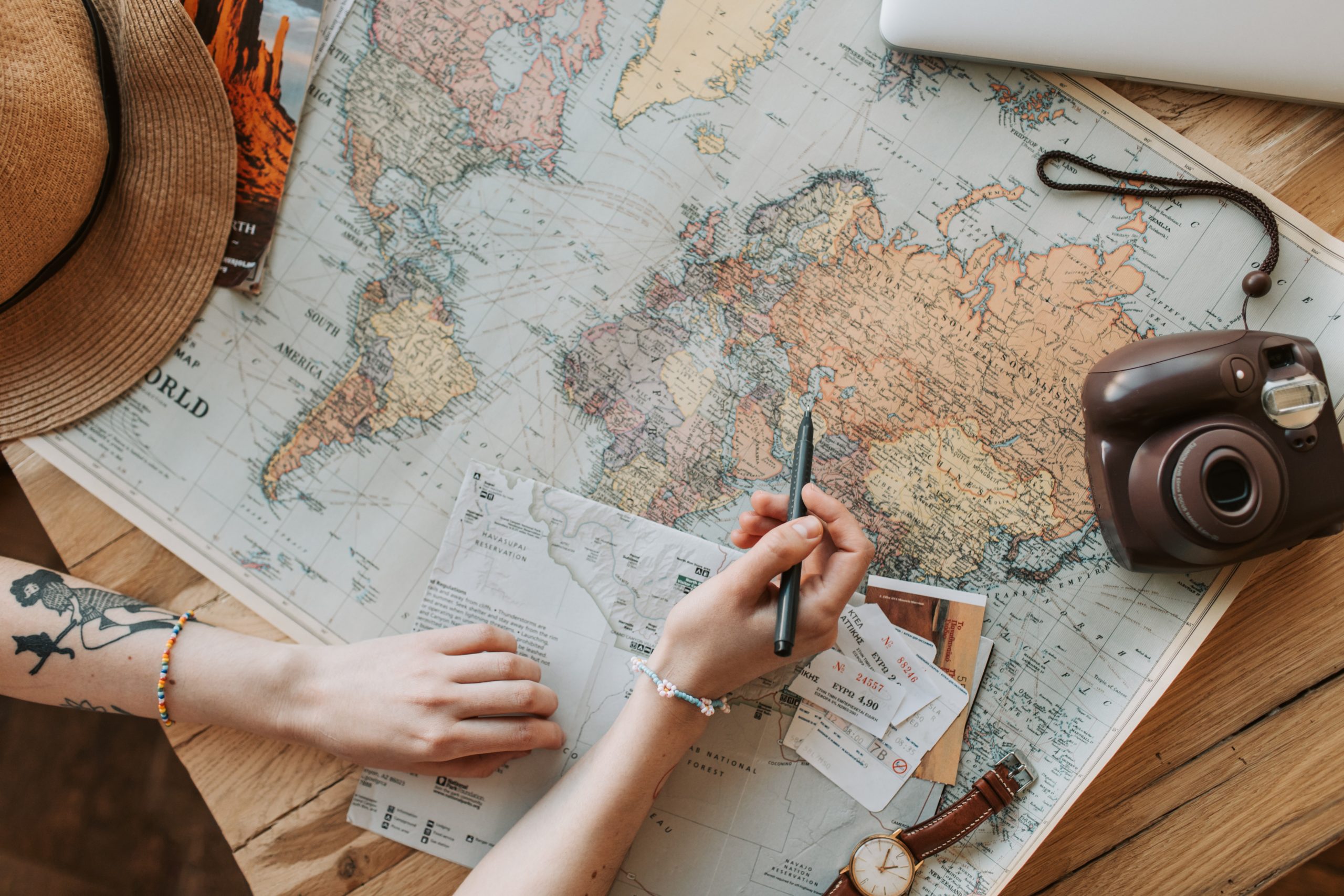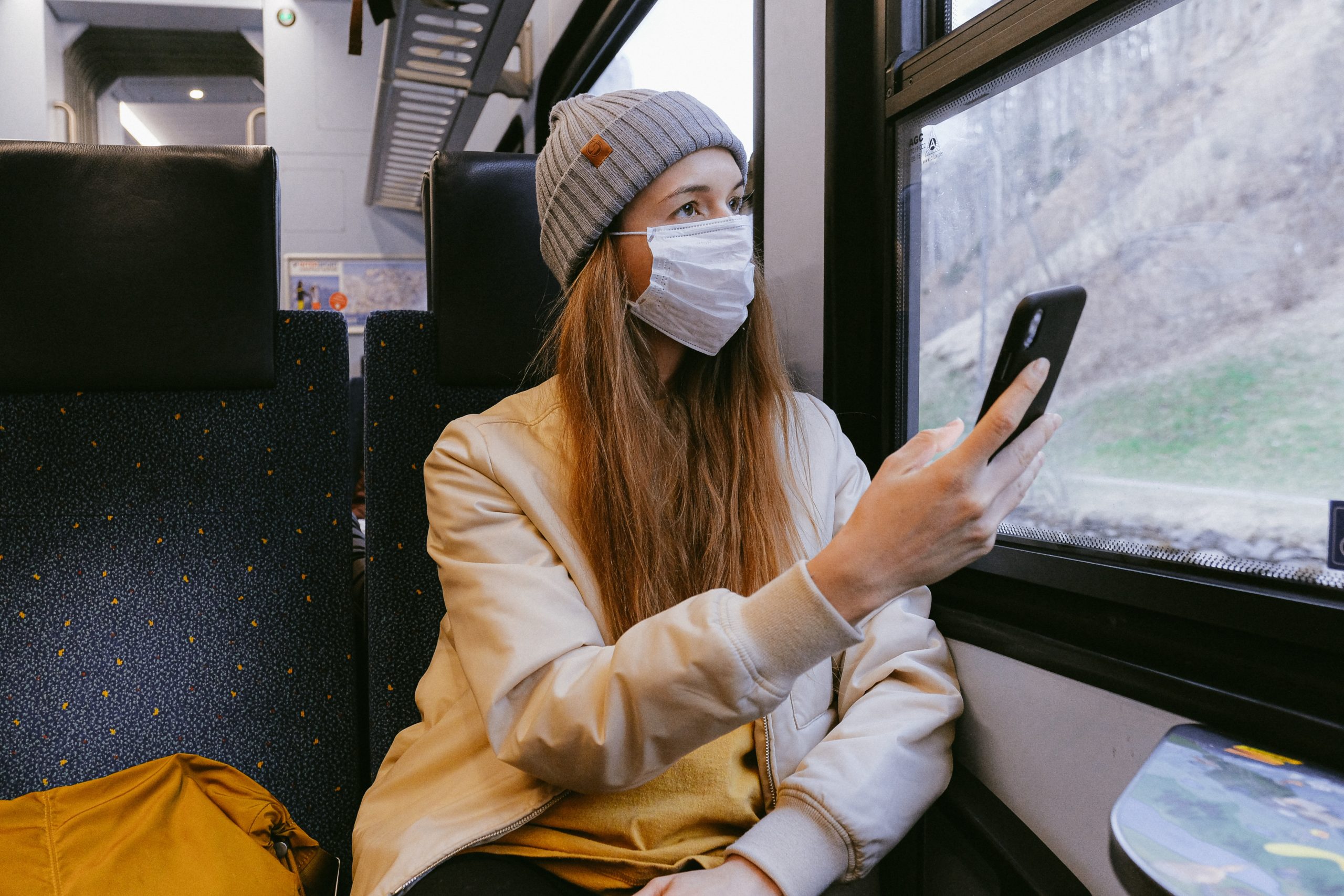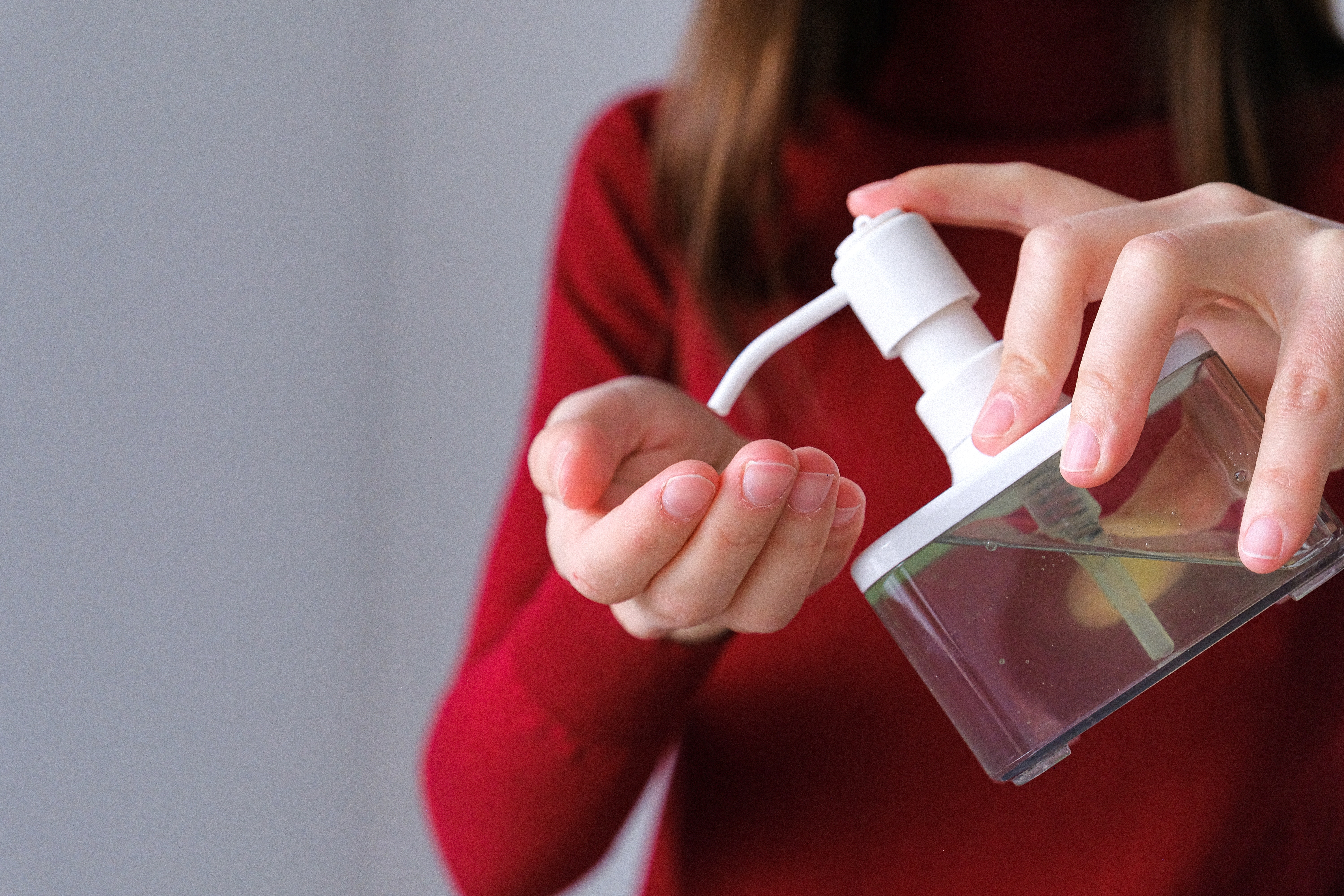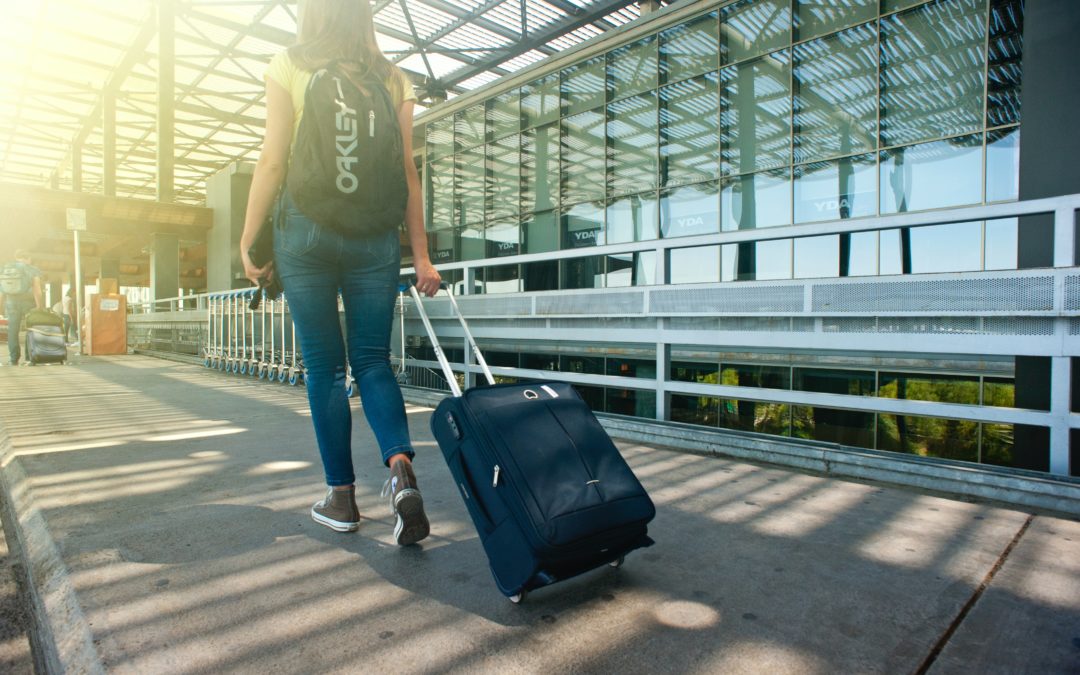
As the holiday season approaches fast, people who were cooped up the past two years are considering braving the pandemic. While the world cautiously opens back again, we’re dreaming of beaches, mountains, and scenic views.
But as much as we all deserve a vacation, the fact remains—the threat of the COVID-19 virus still exists, and we all have to be careful.
Thankfully, there are steps we can do to increase the chances of having a healthy trip—with measures we can take both before and during the planned vacation.
BEFORE THE TRIP
1. Do Your Research.
Be sure to check trusted websites like the CDC and WHO for up-to-date information and possible travel health advisories.
2. Visit Your Doctor or a Travel Clinic.
A month before your planned vacation, visit your doctor to make sure you have all needed vaccinations and medications. However, if your family doctor does not have immediate access to vaccinations, visit a travel medical clinic instead.
Be ready to tell them the country you are visiting, and to discuss your medical history. The goal of the consultation is to keep your vaccinations up-to-date, such as routine immunizations (tetanus, flu shots, etc.)
Some of the most common diseases that require vaccines and medication regimens before traveling are malaria, yellow fever, dengue fever, hepatitis, and other insect- and water-borne illnesses.
And let’s not forget, it’s best to be fully vaccinated against COVID-19 before you take the trip. This is not only for your protection and peace of mind, most countries require that foreign visitors be fully-vaccinated.
So, build up your immunity before you leave. This takes time, so you have to prepare a month in advance.

3. Stock up on Vitamin C.
Nothing is worse than getting sick during a trip. Even if it’s a minor cold or cough, in light of the current pandemic, it will be enough to make you and your travel companions uneasy.
You’ll feel more at ease loading up on Vitamin C way ahead of your trip – whether you’ll be taking vitamin C pills, or be munching on fresh fruits and vegetables. And do this at least a month in advance, not the night before your flight.
4. Balance Your Immunity with Vitamin D.
People often forget Vitamin D, perhaps because it’s less popular than Vitamin C. But Vitamin D, research shows, can help the immune system stay healthy, and may protect against respiratory diseases in general.
Dr. Anthony Fauci, Director of the National Institute of Allergy and Infectious Diseases, said in an interview–“I would not mind recommending—and I do it myself—taking vitamin D supplements. There is good evidence that if you have a low vitamin D level, you have more of a propensity to get infected when there are infections around.”
5. Get Enough Sleep.
We’ve all been there. Planning for travel can be pretty stressful, with all the prep work and a gamut of things to do, we wear ourselves out – too stressed to even fall asleep.
But as much as you can, resist. You need enough sleep to keep your immune system strong. Getting quality sleep is key to maintaining a healthy immune system, so you get to enjoy your well-deserved vacation. For tips on how to stay calm and achieve quality sleep, (READ: Benefits of a Good Night’s Sleep)

6. Pack essentials, such as medicines and a first-aid kit.
First, create a checklist of the medicines you need for yourself, and that of your family’s or your companions’. Examples include Tylenol, Ibuprofen, cold medications, Immodium, first aid band aids, gauze pads, and antiseptic creams. Think of all the scenarios—it wouldn’t hurt to be extra paranoid to complete your travel medicine kit. Better safe than sorry.
Also, depending on where you’re vacationing, language barriers might prevent you from buying medicines in the local drug store in an emergency. Tylenol, for example, might be written in the local language, and there’s the danger of being issued the wrong medicine. So pack that medicine and first-aid kit, and be as meticulous and detail-oriented as you can.
DURING THE TRIP
1. Wash Your Hands
Sure, establishments are more careful now, with anti-bacterial spraying and other health protocols in place. But that doesn’t mean germs and other viruses have stopped proliferating all around the places you’ll pass through to get to your destination – airports, airplanes, taxis and a whole lot more. You just have to keep reminding yourself, germs abound everywhere.
A surefire way to protect yourself is to wash your hands frequently. Proper handwashing is done for 20 seconds minimum, including the nail beds. This is very important especially before eating or drinking. If, by any chance, you don’t have access to handwashing, use a sanitizer or alcohol instead. Avoid touching your face, nose and mouth, if you haven’t cleaned your hands yet.
Another helpful tip: don’t forget your wrists. Our wrists are frequently exposed to germs, thanks to our penchant for leaning on things, such as table surfaces. So wash or apply sanitizer on your wrists as frequently as you can
2. Stay Hydrated
Travel dehydration is a real thing, especially if you’ll be taking a flight. But even if you’re not hopping on an airplane, activity-packed days and hot climates require more liquid consumption than what you’re typically used to at home.
To avoid dehydration, be sure to drink at least eight 8-ounce glasses per day.
Besides preventing dehydration, upping your fluid intake keeps your throat and nasal passages moist via mucus production. When germs enter the throat or nose, the sticky mucus can trap germs, and expel them when we cough or sneeze.
When traveling, be wary of tap or complimentary water. Instead, take no chances by purchasing purified or distilled water only. The same goes with ice cubes in restaurants and other food establishments. Best to skip those ice cubes, as the probability that tap water was used is high, not unless you’re in a five-star restaurant or hotel. When in doubt, ask the staff, or err on the side of caution.

3. Be Careful What You Eat
Pandemic or not, this is one of the golden rules of travel. When dining in restaurants and buying food in stalls or convenience stores, stick to cooked, steamed or hot food. Avoid raw food, as well as fresh fruits and vegetables that were probably washed with tap water, as those can be breeding ground for unwanted germs.
One of the best things we love about travel is sampling street food unique to the country, but this comes with a caveat. Besides opting for cooked food only, you might want to skip the items containing products too, such as eggs and mayonnaise, which may have been left out. Remember, eating spoiled dairy food is a one-way ticket to the bathroom.
4. Skip the Tourist Buses (for now at least)
Transportation is very tricky, because these are confined spaces, and you have no way of knowing if the transport service will limit the number of passengers. This is the time not to scrimp and hire a private transport instead. Don’t bring too many people along for the ride, and avoid removing your mask, and eating or drinking. Keep the windows open to boost ventilation.
5. Follow COVID-19 Health Protocols
Being fully-vaccinated doesn’t mean you won’t be able to catch the virus. That’s why it’s important to continue following COVID-19 guidelines, such as wearing a face mask, and physical distancing from people at least 6 feet away (about 2 arm lengths).
Conclusion
Whatever your travel plans– whether you’re going abroad, taking a road trip, or trooping to an isolated cabin, remember that having a good sickness-prevention strategy starts the moment you pack and head out the door. So stay smart, patient, and alert—traits that will guarantee the safety of your loved ones, and make your trip, despite the risks, a memorable one.
Tags
References:
https://casualtravelist.com/tips-avoid-getting-sick-while-traveling/
https://www.cdc.gov/coronavirus/2019-ncov/travelers/travel-during-covid19.html
https://www.self.com/story/avoid-getting-sick-travel
https://www.hgtv.com/lifestyle/travel/top-ways-to-stay-healthy-while-traveling-pictures
https://www.cookinglight.com/healthy-living/health/ways-doctors-avoid-getting-sick-travel



0 Comments